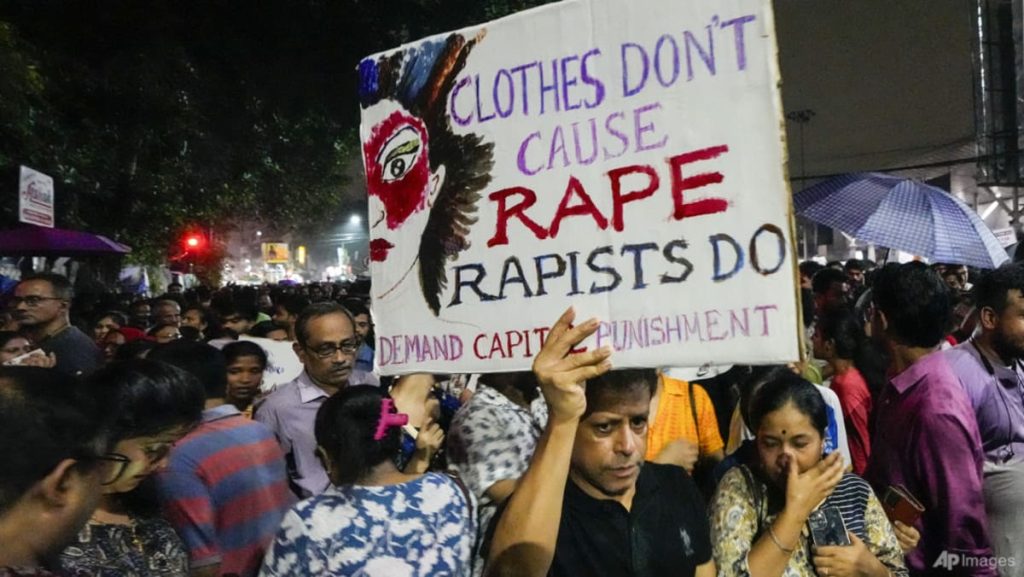The recent murder of a doctor in a teaching hospital in India has shocked the nation as it bears striking resemblance to the infamous 2012 Delhi bus rape case. The victim was found in the seminar hall of the hospital, indicating she may have been taking a brief rest during a long shift. An autopsy confirmed sexual assault, and the victim’s parents suspect she was gang-raped, according to Indian media reports. A man who worked at the hospital has been detained by police, but there have been accusations of mishandling of the case by the authorities.
The Kolkata High Court has transferred the case to the Central Bureau of Investigation (CBI) in an effort to restore public confidence in the investigation process. In response to the handling of the case, a mob of about 40 people stormed the grounds of the R G Kar Medical College and Hospital, where the murder took place. The protesters damaged property and clashed with police, who used tear gas to disperse the crowd. Lawmaker Abhishek Banerjee condemned the violence but acknowledged the fair and justified demands of the protesting doctors.
Sexual violence against women is a pervasive issue in India, with nearly 90 rapes reported each day in 2022 in a country of 1.4 billion people. The brutal nature of this recent attack has drawn comparisons to the 2012 Delhi bus rape case, in which a young woman was gang-raped and murdered, sparking widespread protests and demands for justice. In response to the public outcry, the government introduced harsher penalties for rapists and the death penalty for repeat offenders, along with new laws addressing stalking and accountability for officials who failed to respond to rape complaints.
The echoes of the 2012 Delhi bus rape case highlight the ongoing challenges faced by India in combatting sexual violence against women. Despite the introduction of new laws and penalties, the persistence of such crimes underscores the need for continued efforts to address systemic issues such as gender inequality and societal attitudes towards women. The public outrage and protests following these incidents reflect a growing demand for accountability and justice for victims of sexual violence.
The transfer of the recent murder case to the CBI signifies a step towards rebuilding public trust in the investigation process and ensuring a fair and thorough examination of the circumstances surrounding the victim’s death. The violent protests at the hospital compound underline the deep-seated frustration and anger among the public over the prevalence of sexual violence and the perceived inaction of authorities in addressing these issues. The role of lawmakers and political leaders in condemning such violence and supporting the demands of victims and their families is crucial in fostering a culture of accountability and responsibility.
Moving forward, the Indian government must continue to prioritize the safety and well-being of women and address the root causes of sexual violence through education, advocacy, and legal reforms. The echoes of past tragedies serve as a stark reminder of the urgent need for comprehensive measures to prevent and address gender-based violence in India. By engaging with civil society, enacting stronger protections for women, and holding perpetrators accountable, India can work towards creating a society where women can live free from the fear of violence and discrimination.












